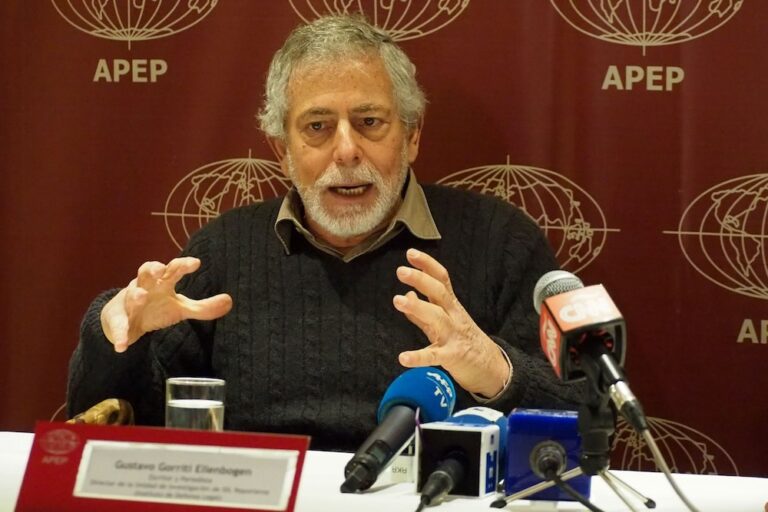(IPYS/IFEX) – The following is a 29 April 2008 IPYS declaration: IPYS DECLARATION ON APCI AND THE FREEDOM OF EXPRESSION OF APRODEH IPYS condemns the government’s attempt to use the Peruvian International Cooperation Agency (Agencia Peruana de Cooperación Internacional, APCI) for political ends, by having it open a special investigation into the Pro-Human Rights Association […]
(IPYS/IFEX) – The following is a 29 April 2008 IPYS declaration:
IPYS DECLARATION ON APCI AND THE FREEDOM OF EXPRESSION OF APRODEH
IPYS condemns the government’s attempt to use the Peruvian International Cooperation Agency (Agencia Peruana de Cooperación Internacional, APCI) for political ends, by having it open a special investigation into the Pro-Human Rights Association (Asociación Pro Derechos Humanos, APRODEH) for having expressed an opinion on the terrorist organization MRTA – a topic of public debate – in an international forum.
The state’s tight monitoring of the opinions of an NGO, to determine if it should continue to receive financial support, opens the door to endless possible abuses and contravenes the Constitution of Peru as well as the American Convention on Human Rights. These legal instruments prohibit states from limiting freedom of expression in any form, including in the guise of official monitoring, as in this case.
This way of censuring the opinion of an NGO implies that the APCI, in practice, can impose decisions of a kind already prohibited by the Constitutional Court. That is, it can be used to permit only those points of view that correspond to those of an organisation’s funders, obliging recipients of support to align themselves with the opinions and points of view of those who provide them funding and – indirectly – with the opinions of the state. This is a denial of free expression.
IPYS, which is registered with the APCI and cooperates fully with the agency’s legitimate supervisory tasks, considers nonetheless that, on this occasion, the agency has overstepped its bounds. This obliges us to express our concern publicly, committed as we are to the defense of free expression – regardless of the political perspective of the individuals exercising that right.
The Executive Council


